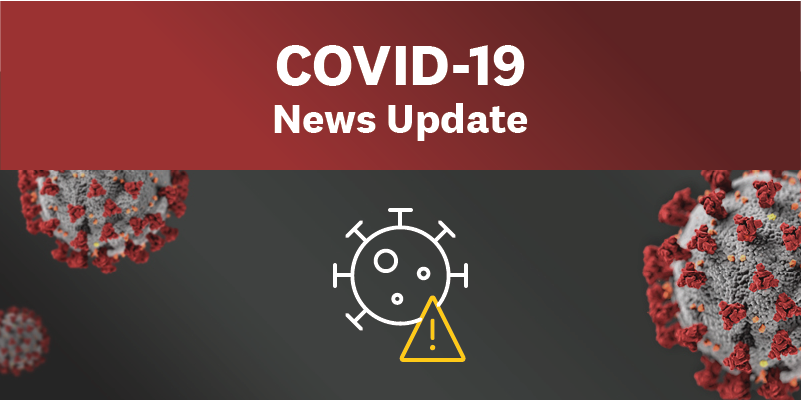
City of Austin
FOR IMMEDIATE RELEASERelease Date:

Austin Public Health monitoring variant of concern as research & guidance emerges
Last updated Monday, December 13
Q. Have Omicron cases been reported in the Austin-Travis County area?
A. On Monday, Dec. 13, the University of Texas at Austin Health Services notified Austin Public Health (APH) of preliminary lab results indicating the presence of the COVID-19 omicron variant in three individuals in Austin-Travis County. If laboratory results are confirmed by genetic sequencing, which will take several days, these will be the first cases of omicron identified in the area.
Q. What does the Omicron variant mean for the Austin-Travis County area?
A. It is too soon to tell what impact the Omicron variant will have on the Austin-Travis County area. The Delta variant continues to account for more than 99% of reported cases. It's critical this holiday season that everyone who is eligible be fully vaccinated and follow the precautions we know work.
- If you are 18 and older, get your booster shot.
- If you have children who are 5 and older, make sure they are fully vaccinated.
- Wear a mask around others if you’re unsure of their vaccination status, especially indoors and with high-risk individuals.
- Wear a mask when traveling, especially by plane.
- If you’re sick: get tested, stay home and consult a healthcare provider to see if you are eligible for monoclonal antibody treatment if you test positive for COVID-19.
- Maintain social distance and wash your hands.
Q. How can I tell if I have the Omicron variant? Do labs report that?
A. The Omicron variant is still COVID-19. You should get tested if you show symptoms. All positive tests are reported to Austin Public Health. Testing indicates whether you have contracted the COVID-19 virus. Testing does not identify a specific variant. A positive test must be sent to a specialized laboratory that performs genomic sequencing to identify the specific COVID-19 variant. If you are sick stay home, self-isolate and seek medical attention to see if you are eligible for monoclonal antibody therapy or if you have problems with breathing or persistent chest pain or pressure.
Q. How does the Omicron variant compare to the Delta variant?
A. There is still a lot to learn about the Omicron variant. Reports from medical researchers in South Africa, where it was initially detected, describe Omicron variant infections as a milder form of COVID-19. However, it is too soon to know whether this is the case and/or whether there are other factors involved. What we do know is getting fully vaccinated and taking necessary precautions is the best way to protect yourself and those around you.
Q. Are the symptoms different for the Delta variant? If so, what are they?
A. Researchers are still working to learn more about the particulars of the Omicron variant. Omicron is still COVID-19. The prevention measures are the same: get vaccinated, wear a mask, socially distance, and stay home if you feel sick. If you feel sick - you should get tested.
Q. Is the Omicron variant worse than the other COVID-19 strains? Will it make me sicker than the other strains?
A. Work is underway to learn about the severity of the Omicron variant compared to other COVID-19 variants. However, it should be taken as seriously as the variants before it.
Q. Is Texas tracking the Omicron variant?
A. Public health officials at all levels of government are working to identify, track and monitor Omicron and other COVID-19 variants to protect our communities.
Q. Who is most at risk of contracting the variant? Are people of certain ages at more risk?
A. Unvaccinated people are most at risk of contracting COVID-19. People who are 65 and older, those who are immunocompromised, and children younger than 5 who are not yet eligible for vaccination are at higher risk of infection from COVID-19 and its variants. Everyone eligible to receive the vaccine should get vaccinated as soon as possible to protect themselves and others.
Q. What’s the treatment for patients with the Omicron variant?
A. Monoclonal antibody treatment is available free of charge for those who are diagnosed with COVID-19 and meet the screening criteria for treatment. People who are eligible can be referred by their doctor for treatment.
Q. Do the same rules apply for travel as they did for the original COVID-19 strain?
A. Travelers should continue to follow CDC recommendations for traveling, including checking your destination’s COVID-19 situation. The U.S. State Department announced enhanced restrictions for certain travelers entering the U.S. starting Nov. 29 due to concerns over the new Omicron variant.
Q. How many known variants are there?
A. COVID-19 mutates as it spreads, creating new variants of the virus. The CDC has compiled a list of variants of interest and concerns that they are monitoring.
Q. What types of differences exist between variants?
A. Differences between variants include how easily the virus spreads, the severity of illness it causes, how well existing tests can detect it, the effectiveness of treatments and vaccines, and more.
Q. Do vaccines protect against the Omicron variant?
A. It’s too early to determine how effective vaccines are against the Omicron variant. As with previous variants, the best way to protect yourself against COVID-19 is to get fully vaccinated and take whatever precautions your situation warrants, including:
- Wear a mask if you are at high risk for infection, especially if indoors with people you don’t know.
- Socially distance in crowded situations.
- Wash your hands regularly as part of your daily hygiene routine.
- If you have symptoms that might be allergies or a cold, get tested.
- Stay home if sick.
Austin Public Health will update this page as we learn more about the Omicron variant.
###

